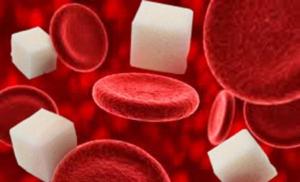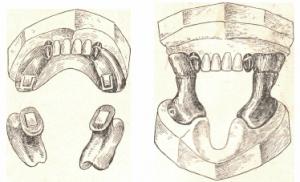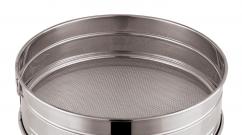Lowering atmospheric pressure impact on the human body. Influence of pressure and temperature change
Atmospheric pressure is considered normal within the range of 750-760 mm Hg. (millimeters mercury column). During the year, it fluctuates within 30 mm Hg. Art., and during the day - within 1-3 mm Hg. Art. Abrupt change atmospheric pressure often causes a deterioration in well-being in weather-dependent, and sometimes in healthy people.
If the weather changes, patients with hypertension also feel bad. Consider how atmospheric pressure affects hypertensive patients and meteorologically dependent people.
Weather dependent and healthy people
Healthy people do not feel any changes in the weather. Weather dependent people experience the following symptoms:
- Dizziness;
- Drowsiness;
- Apathy, lethargy;
- joint pain;
- Anxiety, fear;
- Violations of the gastrointestinal tract;
- fluctuations in blood pressure.
Often, health worsens in the fall, when there is an exacerbation of colds and chronic diseases. In the absence of any pathologies, meteosensitivity is manifested by malaise.
Unlike healthy people, weather-dependent people react not only to fluctuations in atmospheric pressure, but also to increased humidity, sudden cooling or warming. The reason for this is often:
- low physical activity;
- The presence of diseases;
- Fall of immunity;
- Deterioration of the state of the central nervous system;
- Weak blood vessels;
- Age;
- Ecological situation;
- Climate.
As a result, the body's ability to quickly adapt to changes in weather conditions deteriorates.
High atmospheric pressure and hypertension
If the atmospheric pressure is elevated (above 760 mm Hg), there is no wind and precipitation, they speak of the onset of an anticyclone. During this period, there are no sudden changes in temperature. The amount of harmful impurities in the air increases.
The anticyclone has a negative effect on hypertensive patients. An increase in atmospheric pressure leads to an increase in blood pressure.

Working capacity decreases, pulsation and pains in the head, heart pains appear. Other symptoms negative influence anticyclone:
- Increased heart rate;
- Weakness;
- Noise in ears;
- redness of the face;
- Flashing "flies" before the eyes.
The number of white blood cells in the blood decreases, which increases the risk of infections.
Elderly people with chronic cardiovascular diseases are especially susceptible to the anticyclone. With an increase in atmospheric pressure, the likelihood of a complication of hypertension increases - a crisis, especially if blood pressure rises to 220/120 mm Hg. Art. It is possible to develop other dangerous complications (embolism, thrombosis, coma).
Low atmospheric pressure
Poor effect on patients with hypertension and low atmospheric pressure - a cyclone. It is characterized by cloudy weather, precipitation, high humidity. The air pressure drops below 750 mm Hg. Art.

The cyclone has the following effect on the body: breathing becomes more frequent, the pulse quickens, however, the strength of heart beats is reduced. Some people experience shortness of breath.
With low air pressure, blood pressure also drops. Taking into account the fact that hypertensive patients take drugs to reduce pressure, the cyclone has a bad effect on well-being. The following symptoms appear:
- Dizziness;
- Drowsiness;
- Headache;
- Prostration.
In some cases, there is a deterioration in the functioning of the gastrointestinal tract.
With an increase in atmospheric pressure, patients with hypertension and weather-dependent people should avoid active physical exertion. Need more rest. A low-calorie diet containing an increased amount of fruit is recommended.
If the anticyclone is accompanied by heat, it is also necessary to exclude physical activity. If possible, stay in an air-conditioned room.

A low-calorie diet will be relevant. Increase the amount of foods rich in potassium in your diet.
To bring back to normal arterial pressure with low atmospheric pressure, doctors recommend increasing the amount of fluid consumed.
Drink water, infusions medicinal herbs. It is necessary to reduce physical activity, more rest.
Good sleep helps. In the morning, you can allow a cup of a drink containing caffeine. During the day, you need to measure the pressure several times.
Influence of pressure and temperature change
A lot of health problems can be delivered to hypertensive patients and changes in air temperature. During the anticyclone period, combined with heat, the risk of cerebral hemorrhages and heart damage increases significantly.
Because of high temperature And high humidity the oxygen content in the air decreases. This weather is especially bad for the elderly.
The dependence of blood pressure on atmospheric pressure is not so strong when the heat is combined with low humidity and normal or slightly elevated air pressure. However, in some cases such weather cause blood clotting. This increases the risk of blood clots and the development of heart attacks, strokes.

The well-being of hypertensive patients will worsen if atmospheric pressure rises simultaneously with a sharp decrease in ambient temperature. With high humidity, strong wind hypothermia (hypothermia) develops. Excitation of the sympathetic department nervous system causes a decrease in heat transfer and an increase in heat production.
The reduction in heat transfer is caused by a decrease in body temperature due to vasospasm.
The process contributes to an increase in the thermal resistance of the body. To protect against hypothermia of the extremities, the skin of the face constricts the vessels that are in these parts of the body.
If the cooling of the body is very sharp, a persistent vascular spasm develops. This can cause an increase in blood pressure. In addition, a sharp cold snap changes the composition of the blood, in particular, the amount of protective proteins decreases.
Change in atmospheric pressure with height
Above sea level
As you know, the higher from sea level, the lower the air density and the lower the atmospheric pressure. At an altitude of 5 km, it decreases by about 2 r.

The influence of air pressure on the blood pressure of a person located high above sea level (for example, in the mountains) is manifested by such signs:
- Increased breathing;
- Acceleration of heart rate;
- Headache;
- Asphyxiation attack;
- Nosebleeds.
The basis of the negative impact of low air pressure is oxygen starvation, when the body receives less oxygen. In the future, adaptation occurs, and well-being becomes normal.
A person who permanently lives in such an area does not feel the effect of low atmospheric pressure in any way. You should know that in hypertensive patients, when climbing to a height (for example, during flights), blood pressure can change dramatically, which threatens with loss of consciousness.
Underground
Under ground and water, air pressure is increased. Its effect on blood pressure is directly proportional to the distance one has to descend.
The following symptoms appear: breathing becomes deep and rare, heart rate decreases, but only slightly. The skin becomes slightly numb, the mucous membranes become dry.
The body is hypertensive, as well as ordinary person, adapts better to changes in atmospheric pressure if they occur slowly.
Much more severe symptoms develop due to a sharp drop: increase (compression) and decrease (decompression). In conditions high blood pressure atmosphere miners, divers work.
They descend and rise underground (under water) through locks, where the pressure rises / falls gradually. At elevated atmospheric pressure, the gases contained in the air dissolve in the blood. This process is called "saturation". When decompressed, they come out of the blood (desaturation).

If a person goes down great depth underground or under water in violation of the exclusion regime, the body will be oversaturated with nitrogen. Decompression sickness will develop, in which gas bubbles penetrate the vessels, causing multiple embolisms.
The first symptoms of the pathology of the disease are muscle and joint pain. In severe cases, eardrums burst, dizziness, labyrinthine nystagmus develops. Decompression sickness sometimes ends in death.
Meteopathy
Meteopathy is a negative reaction of the body to changes in the weather. Symptoms range from mild malaise to severe myocardial dysfunction that can cause permanent tissue damage.
The intensity and duration of manifestations of meteopathy depend on age, build, and the presence of chronic diseases.
Some ailments last up to 7 days. According to medical statistics meteopathy is present in 70% of people with chronic ailments and in 20% of healthy people.
The reaction to a change in the weather depends on the degree of sensitivity of the body. The first (initial) stage (or meteosensitivity) is characterized by a slight deterioration in well-being, not confirmed by clinical studies.
The second degree is called meteorological dependence, it is accompanied by changes in blood pressure and heart rate. Meteopathy is the most severe third degree.
With hypertension, combined with meteorological dependence, the cause of deterioration of health can be not only fluctuations in atmospheric pressure, but also other environmental changes. Such patients need to pay attention to weather conditions and weather forecasts.
How does high and low atmospheric pressure affect hypertensive patients?
How does atmospheric pressure affect blood pressure?
The general condition of our body depends on many factors. It can worsen gradually - due to chronic lack of sleep, malnutrition, And bad habits. And sometimes it also happens that like yesterday I felt full of energy and one hundred percent healthy, and in the morning I woke up completely broken. So it happens that something affects the body. And far from always, such changes are directly related to the internal state of the body; they can even be caused by environmental factors, such as atmospheric pressure. Let's talk about how atmospheric pressure affects the health of the human body?
In general, atmospheric pressure refers to the pressure that air exerts on the ground. A huge mass of the air column is constantly pressing on our body, but we do not feel its weight. We adapted to it, got used to it. However, with a decrease or increase in atmospheric pressure, our well-being may change, because environmental conditions change and this affects health ...
Normal atmospheric pressure is considered to be a pressure of approximately seven hundred and sixty millimeters of mercury (760 mm Hg). Changes in these indicators are accompanied by changes in weather conditions.
In certain parts of our planet, high or low pressure is always recorded. People who live there permanently do not feel any disturbances because of this, as the body simply gets used to such conditions.
Who is particularly sensitive to changes in atmospheric pressure?
Most often, such changes disturb patients with chronic diseases of the cardiovascular, musculoskeletal and respiratory system. In addition, atmospheric pressure fluctuations affect a person with an unbalanced psyche and can aggravate the condition of people with mental illness. And they have a negative impact on the well-being of those who have experienced clinical death and head injuries.
High atmospheric pressure - how does it affect a person?
At high atmospheric pressure, meteorologists speak of an anticyclone. On the street at this time reigns dry, windless and quiet weather. The anticyclone is not accompanied by sudden changes in temperature, but a significant amount of aggressive substances (exhaust gases, etc.) accumulate in the air.
Negative influence high atmospheric pressure usually affects the well-being of patients with allergic diseases and hypertension. Such ailments at this time often affect human health in full force. In addition, a sharp jump in atmospheric pressure can cause malaise in patients suffering from coronary disease hearts with circulatory failure, as well as from spastic colitis.
High atmospheric pressure can cause a number of health problems. Patients are concerned about headaches, pain in the region of the heart, an increase in blood pressure and a significant deterioration in performance.
The increased atmospheric pressure also acts on the human body, causing feelings of general weakness and lethargy. With an increase in atmospheric pressure, a decrease in leukocytes in the blood is usually observed, which worsens the overall resistance of the body to infections.
In the presence of serious health problems, an increase in pressure can lead to a heart attack or a hypertensive crisis. Therefore, with a noticeable deterioration in well-being, do not hesitate and call an ambulance.
In order to somewhat improve your well-being during the anticyclone, doctors strongly recommend taking appropriate measures in the evening. So you can go to bed early and sleep well, and in the morning do a simple exercise, disperse the blood, take a contrast (not sharp) shower. Also, it will not be superfluous to saturate your diet with foods rich in potassium.
Low atmospheric pressure - how does it affect a person?
A decrease in atmospheric pressure is classified by meteorologists as a cyclone. During it, the weather deteriorates, there is cloudiness, precipitation, excessive humidity.
Low atmospheric pressure usually negatively affects the health and general well-being of those people who suffer from heart and vascular diseases, diseases of the respiratory system and low blood pressure.
During a cyclone, a person may experience a number of unpleasant symptoms. He may be disturbed by frequent breathing, an increase in heart rate, a decrease in the strength of the heart beat. In some cases, oxygen starvation occurs and shortness of breath appears.
If low atmospheric pressure is accompanied by disturbances in the activity of the heart, it can cause difficulties in the full blood circulation of the extremities. Also, often there are painful sensations in the area of \u200b\u200bthe joints and feet, numbness of the fingers is possible.
With a certain predisposition, a cyclone can lead to the development of serious health problems: heart attacks and hypertensive crises. Also, on days of reduced atmospheric pressure, doctors are faced with complaints of exacerbation of the respiratory system, severe headaches and cerebrovascular accidents.
In order to somewhat reduce the likelihood of ailments with a decrease in atmospheric pressure for a relatively healthy person, you need to get a good night's sleep, drink more than ordinary water during the day. pure water. Also in the morning it will not be superfluous to drink a cup of quality coffee or black tea.
If you see how atmospheric pressure negatively affects a person close to you, or you, then be sure to consult a doctor. The specialist will help you choose the right medicines that will prevent the occurrence of serious health problems.
Jumps in blood pressure are now observed in many people. They arise as a result of exposure to various irritating factors. Pressure problems are especially acute due to changes in weather and climatic conditions. One such problem is the effect of atmospheric pressure on human blood pressure.
With sudden changes in the weather in people suffering from chronic diseases, exacerbations are often observed. This is especially true for hypertension, hypotension and heart disease. The person begins to feel the following symptoms:
- breathing difficulties, shortness of breath even with minor exertion;
- dizziness, sometimes with loss of consciousness;
- nausea leading to vomiting;
- sleep disturbances, constant sleep deprivation;
- sharp headaches.
With a decrease in atmospheric pressure, which manifests itself in the form of fog, rain, heavy cloudiness, a person experiences symptoms of a decrease in blood pressure. This is especially true for hypotensive patients. For them, such weather can cause an extremely serious condition. In order to withstand such a weather phenomenon and at the same time feel normal, you should adhere to the following rules:
- sleep well, the body should fully rest;
- use a large number of liquids;
- drink a cup of black or green tea in the morning.

Also, do not forget about regular physical activity which will help keep the body in good shape.
High atmospheric and blood pressure have a close relationship. If dry hot weather without wind, then a person suffering from hypertension may experience such unpleasant symptoms:
- a sharp increase in pressure;
- high heart rate;
- general weakness of the body;
- excessive fatigue;
- change in the color of the skin of the face;
- severe headaches;
- noise in ears;
- dizziness, often leading to loss of consciousness.
In dry and hot weather, hypertensive patients increase the risk of a heart attack or stroke. In order to avoid dangerous consequences as a result of such a change in weather conditions, the following measures are required:
- avoid excessive physical activity;
- fully rest;
- take a contrast shower every morning;
- follow a diet and a minimum amount of calories;
- eat more fresh vegetables and fruits;
- drink as much water as possible;
- try to stay in cool comfortable rooms.

It's important to know! The dependence of blood pressure on the atmospheric indicator is very high! Therefore, it is necessary to carry out preventive measures and constantly maintain the body in good shape.
At-risk groups
Since atmospheric pressure directly affects blood pressure, you should know: who is most susceptible to a sharp deterioration in well-being under certain changes in weather conditions. These are:
- People with chronic diseases of the respiratory system. During the period of weather changes, such people experience an exacerbation of lung diseases.
- People suffering from high or reduced pressure.
- Persons with disorders of the central nervous system.
- People who have heart vascular disease, atherosclerosis of the brain and limbs, osteochondrosis.
Important to remember! During the period of weather change, people with the above diseases need to be more attentive to their health! It is better to contact a specialist who will prescribe a course medicines for preventive purposes.
In addition to atmospheric pressure, negative impact Humidity also affects the human body. If this indicator is underestimated, then people with chronic respiratory diseases and people prone to allergic reactions. In order to alleviate the condition during excessively dry weather, it is required to use aqueous nasal solutions. This will help maintain the normal state of the nasal mucosa, eliminate dryness, and also avoid seasonal exacerbations of the disease.

As for high humidity, people with chronic diseases of the kidney system and joints experience excessive discomfort in such weather. In such cases, as preventive measures, it is required to adhere to the following rules:
- minimize being outdoors;
- during hiking, you should take care of your comfort, that is, dress warmly;
- take complex vitamins.
Important to remember! A person who is prone to deterioration of health to changes in humidity needs to constantly maintain immune system fine! To do this, you should eat food enriched with vitamins and other useful substances, observe the daily routine, and also do not forget about regular physical activity and hardening.
Air temperature and atmospheric pressure
High air temperature is sometimes accompanied by an increase in atmospheric pressure. From such weather phenomenon always suffer people who have problems with cardiovascular system. An increase in temperature with a simultaneous increase in atmospheric pressure worsens the condition with hypertension, as well as people with diseases of the genitourinary system and the gastrointestinal tract.
Therefore, in case of any changes in weather conditions, it is necessary to immediately take preventive measures.
Often a person complains of increased sensitivity to weather conditions. Not the last role in this is played by atmospheric pressure, which changes with the weather. How do these changes affect people's well-being?
How atmospheric pressure affects a person: negative manifestations
It has long been known that changes in atmospheric pressure can significantly affect health. This fact is especially strong when a person moves from one area of \u200b\u200bresidence to an area with strikingly different climatic conditions. But even with permanent residence in one place, a change in conditions leads to a number of negative consequences.
So, with an increase in the value of this factor:
- the number of heartbeats decreases;
- blood pressure decreases;
- breathing becomes deeper, but rare;
- hearing, smell worsens;
- slight numbness of the skin surface is possible;
- the voice is muffled;
- there is dryness of the mucous membranes of the nasopharynx and conjunctiva of the eyes.
If a person is completely healthy, such changes have a slight, almost imperceptible effect.
When the value is lowered, the following symptoms appear:
- increased heart rate;
- quickening of breathing;
- weakening of the force of heart contractions;
- increase in the number of red blood cells in the blood;
- the possibility of oxygen starvation, since a decrease in the functionality of the respiratory system and blood flow leads to insufficient oxygen supply to the body.
What is considered more harmful: an increase or decrease in atmospheric pressure? It is difficult to answer this question, since in many respects a person's well-being depends on the presence of diseases. Especially hard abrupt shifts weather is tolerated by meteorologically hypertensive patients, as well as hypotensive patients.
What is the optimal atmospheric pressure for a person?

Physicists have long proposed a method for determining atmospheric pressure. To any point earth's surface and all objects located on it, including living organisms, are pressed by a column of air.
For a resident of Russia, units of mercury are considered a familiar measurement. For humans, comfortable atmospheric pressure is 760 mm at 0°C. By the way, changing the indicator has great practical benefits.
It is thanks to the ability to determine the value of pressure that mankind has learned to predict the weather for the near future.
It is worth noting that the mercury column never remains unchanged.
The atmospheric column presses differently on a person, even depending on the time of day. During the day, the indicator decreases, and at night, on the contrary, it rises. In conditions of rarefied air, for example, in mountainous areas, a person lives in conditions of reduced pressure.
Closer to the equator, on the contrary, it intensifies. All this is connected with the peculiarities of the motion and rotation of the planet, the distribution air masses and wind direction.
It just so happens that atmospheric pressure and human health are often linked. Mankind is not yet able to change the weather conditions. But, it is quite possible to adapt to them, significantly reducing the load on the body. If a person experiences discomfort and malaise when the weather changes, one should consult with a narrow specialist or a therapist who recommends optimal pharmacological preparations that make it easier to endure an unfavorable period.
How to reduce the impact of atmospheric pressure on human well-being

A decrease or increase in the value by 10 or more units leads to a significant deterioration in the condition. However, knowing the weather forecasts, you can take timely measures to reschedule this period with less negative impact.
For example, a decrease in the indicator, a cyclone, is characterized by high cloudiness, humidity and precipitation. At this time, atmospheric pressure in the lives of people with hypotension provokes disturbances in the work of the respiratory and cardiac vascular system, headache attacks, deterioration of the functionality of the digestive tract.
Therefore, it is important to control your own blood pressure.
The following steps will help you adapt to the cyclone:
- drinking more fluids;
- deep sleep;
- cold and hot shower;
- drinking a cup of coffee.
You can normalize the state with the help of tinctures such medicinal plants like ginseng, lemongrass, eleutherococcus.

The approach of an anticyclone, a zone with high atmospheric pressure, promises windless clear weather and the absence drastic changes humidity and temperature. Most often, a person with a predisposition to allergies, hypertension, and bronchial asthma reacts negatively to high atmospheric pressure. Such weather is dangerous and overestimated content of harmful industrial impurities in the air.
27.09.2017Atmospheric pressure depends on many factors and is constantly changing. It is influenced by the movement of anticyclones and cyclones, as well as indicators of humidity and temperature, the climate of a particular region and its location relative to sea level. Many people feel these vibrations. And how does high atmospheric pressure affect people - hypertensive patients? They are especially tolerant of weather changes.
Air pressure fluctuations and its features
Atmospheric pressure depends on a number of factors and varies within fairly wide limits. The location of a particular territory, taking into account sea level, is one of them. The higher you climb, the lower the pressure will be (a drop of 1 mm Hg is noted when you rise for every 10 m.).
It also depends on temperature regime- This is due to the uneven heating of the earth's surface. There are separate areas with high or low pressure. So, in places of especially strong heating, when air rises, zones with reduced pressure appear, which is called a cyclone. At cold weather the air begins to move down, which causes the formation of high pressure zones, called anticyclones.
Fluctuations in this indicator are possible when changing the time of day.
The human body is sensitive to environment and its variability. The most acute reactions to changes in external pressure are individuals who have been diagnosed with problems with the cardiovascular system, hypertension.
Relationship between human pressure and the atmosphere
Blood pressure in humans characterizes how strongly the blood flows are pushed out by the heart muscle and what resistance is observed from the side of the vessels. Depending on the arrival of cyclones and anticyclones, blood pressure indicators begin to change. Problems can be more pronounced if a person has some disorders in this area - hypotension, hypertension.
In practice, low atmospheric pressure creates problems for hypotensive patients, and hypertensive patients tolerate it relatively normally. But with an increase in this indicator, the condition of people with high blood pressure worsens. This is due to the increase in the load on the body as a whole.
Hypertension and high atmospheric pressure
How are atmospheric pressure and hypertension related? With such an ailment, a person’s well-being worsens significantly against the background of weather changes. High blood pressure is considered to be greater than 760 mm Hg. Art. Usually it is accompanied by a constant temperature and normal humidity in the absence of precipitation and winds.
What changes are characteristic at high atmospheric pressure? The well-being of people whose blood pressure is elevated does not remain normal. In this case, the following symptoms are usually noted:
- decrease in working capacity;
- the appearance of noise;
- headache;
- "flies" in the eyes;
- pain in the region of the heart;
- rapid heart rate;
- redness of the skin of the face;
- weakness and apathy.
In addition to external, there are some internal changes in the body: with a combination of high atmospheric pressure and hypertension, there is a drop in
the number of blood leukocytes. Against this background, the risk of ailments of an infectious nature increases. If problems with the work of the heart and blood vessels are chronic, a person feels fluctuations in atmospheric pressure especially sharply. In this case, the risk of developing complications of high blood pressure in the body, such as a hypertensive crisis, as well as other conditions - thrombosis, embolism, and even coma, increases.
Why does the anticyclone affect people with high blood pressure?
The anticyclone involves a number of changes, among other things, the atmospheric pressure increases. Dry and sunny weather, in the absence of wind - this is his typical description. This further worsens the condition of a person, makes his breathing more difficult. Outwardly, this is manifested in reddening of the skin and sweating of the hands, blood pulsations.
Hypertensive patients feel such fluctuations best of all: the already high blood pressure further increases, the risk of stroke and heart attack increases.
Experts note the active influence of atmospheric pressure on hypertensive patients. They are more acutely aware of not only the increase, but also the fall of this indicator in the atmosphere, unlike hypotensive patients, whose pressure is usually slightly below average.
How to ease the impact of this change
The association between high blood pressure and hypertension is strong. Therefore, all people who have such health problems need to be able to alleviate their condition for these periods of time.
To get started, you should regularly monitor weather forecasts:
- The cyclone will bring a drop in atmospheric pressure, along with precipitation and temperature changes. But, given how low pressure affects hypertensive patients, it is still worth monitoring the state of your body.
- The anticyclone will bring high pressure and windless weather. In general, the effect of high atmospheric pressure on the human body is negative; in hypertensive patients, activity and its defenses are especially clearly reduced.
To alleviate the effect of atmospheric pressure in anticyclone conditions, it is recommended:
- do simple exercises;
- take a contrast shower, sometimes several times throughout the day;
- control your diet - nutrition should be complete and balanced;
- eat during this period more fruits, which contain potassium;
- eliminate stress and strong emotional experiences;
- observe the sleep and rest regimen;
- avoid overeating.
What to do in advance
People suffering from high or low blood pressure should clearly understand how low or high atmospheric pressure affects their body in order to be able to counteract.
The influence of the anticyclone is strongest in hot weather. summer period, while frost makes it softer, although breathing is difficult in any case, which means that the cells of the body do not receive the amount of oxygen they need.
All those who suffer from hypertension should take care of their bodies in advance, regardless of how atmospheric pressure changes.
To minimize action external factors necessary:
- bring body weight to normal levels, which will facilitate the activity of the body as a whole;
- eat regularly and properly;
- take timely measures to treat identified ailments and stabilize the condition;
- walk on fresh air, ideally away from dusty city highways;
- rest enough.
Particular attention should be paid to the state of the nervous system. Stress is not good for anyone, especially for hypertensive patients. Emotional instability, like atmospheric pressure, affects general well-being. Therefore, you need to minimize watching the news, other exciting activities.
To calm down, you can take medications if they are prescribed by a doctor. From folk remedies have a calming effect Apple juice, infusion of chamomile and mint.
Meteopathy and its features
Changes in the weather and atmospheric pressure affect the human body to one degree or another. Some have only mild impairment of well-being, while others may have severe impairment, fraught with irreversible tissue damage.

Meteopathy and its severity are largely determined by a person's age and body weight, the state of the body as a whole and the presence of chronic ailments. Another reaction to changes in the weather is determined by the individual sensitivity of a single person. Experts identify three levels of the problem:
- mild, accompanied by minimal deterioration;
- average, expressed in fluctuations in heart rate and blood pressure;
- severe or meteopathy suggests the most pronounced deterioration.
If hypertension is combined with a serious degree of weather dependence, this is a particularly dangerous combination. In this case general state of a person worsens, both under the influence of atmospheric pressure, and with other weather changes. It is important for such people to take timely preventive measures to stabilize their well-being.
Many people suffer from weather dependence. It is most acutely felt by hypertensive and hypotensive patients. These diseases require careful attention to the body and the timely adoption of measures that will help prevent significant deterioration.













